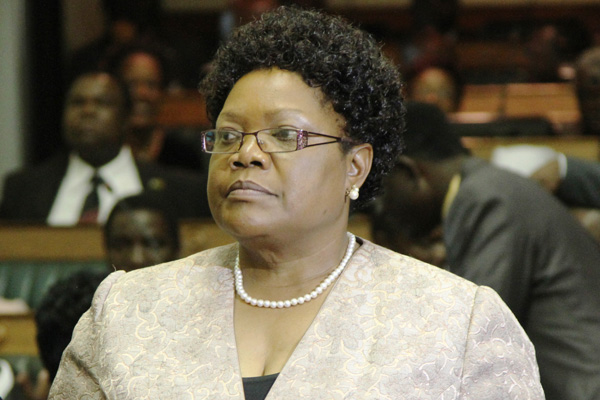
Former vice-president and leader of the People’s Rainbow Coalition, Joice Mujuru, is confident she will become the country’s first female president after the July 30 national elections.
BY GRACE MUTANDWA
VoteWatch263
Mujuru, who was the youngest minister at independence in 1980 in the Robert Mugabe-led government, had until 2014 served in various capacities in government. She was kicked out of Zanu PF in April 2015 following allegations that she wanted to unseat Mugabe.
She was at the time serving as one of Mugabe’s two vice-presidents.
In a recent interview with VoteWatch263, a confident Mujuru said Zimbabwe was ready for a female president and that she had what it took to run the country.
She said she was running a tight campaign, which involved engaging the electorate. She said she believed in less talking and more listening, which formed a strong element of her campaign strategy.
On the economic and political challenges facing the country, Mujuru said: “Our problem is more than the economic downturn and high unemployment. We as a people have to work at being spiritually ready to engage each other respectfully.
- Chamisa under fire over US$120K donation
- Mavhunga puts DeMbare into Chibuku quarterfinals
- Pension funds bet on Cabora Bassa oilfields
- Councils defy govt fire tender directive
Keep Reading
“We have to mend our broken relationships and be able to address each other without animosity. We have become a very angry people and that is not healthy because it will hamper whatever developments we want to undertake.
“We are also good at apportioning blame and we don’t even seem to understand when we are hero-worshipping leaders and what the repercussions of such behaviour are.
“We are a damaged country and we should learn to communicate in a positive way so that we hear each other. We should learn to listen. We don’t have to agree on everything, but we should be able to disagree amicably.
She noted that the reason why some Zimbabweans were so intolerant could be because, “People didn’t get time to work themselves out of the war situation (1970s war of liberation).
“We had no time for healing and found ourselves in a difficult political environment that only made people angrier.”
Mujuru, who successfully filed her nomination papers as one of the 23 presidential candidates and one of three women in the race for the country’s top job, said devolution of power would speed up development. She said there should be decision-making opportunities at ward level focused on development and rehabilitation of infrastructure.
Commenting on Mujuru’s candidature, Marian Tembo of Glen View in Harare said she felt it was time for a female president because men had failed. She, however, pointed out that she was not sure that Mujuru would win the elections because women tended to prefer voting for men.
“I will vote for Mujuru, but I don’t see many women voting for her. Most of my friends will vote for the male presidential candidates because they don’t trust her,” said Tembo.
Victor Hungwe, a young vendor, said: “Although I think we should try voting for a woman, I’m not sure about Mujuru. Most women are not even interested in voting for fellow women so why must men vote for a female president? On the other hand, I think we should try a woman because men seem unable to break the cycle of destruction around us.” A registered voter, Lillian Maunde, said she was happy that four women would contest in the presidential race.
“I’m encouraged by the fact that we have four women courageous enough to try for the top job. My choice lies between Joice Mujuru and Thokozani Khupe. The third woman, Violet Mariyacha, is someone I have never heard of so she is not someone I would vote for. I will decide whom to vote for between Mujuru and Khupe just before polling day,” Maunde said.










